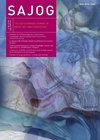在资源有限的环境中,利用分娩潜伏期的脑胎盘比率预测不良结果
IF 0.4
Q4 OBSTETRICS & GYNECOLOGY
引用次数: 0
摘要
背景在南非,孕妇的风险分层可能会降低围产期死亡率。这取决于对转诊医疗机构的评估和对患者的及时介绍。年代测定不准确会影响检测生长限制的能力。需要转诊的患者可能未被发现,并提供了不适当的护理水平。多普勒研究可以帮助检测高危胎儿。目标。根据文献中的各种定义,描述脑胎盘比率正常或异常的胎儿的短期结果。方法。前瞻性地招募了200名处于早产期的孕妇。获取患者病史,包括之前的超声扫描。对生物测量、脐动脉(UA)、大脑中动脉(MCA)和子宫多普勒进行超声检查,并计算CPR。记录了劳动力和交付细节。确定了异常心肺复苏、不良反应和综合评分之间的相关性。结果。不到十分之一(7.7%;n=15)的参与者心肺复苏<1.08。此外,16.5%(n=31)的参与者<第5百分位数,24.2%(n=47)的参与者小于第10百分位数。有和没有心肺复苏术的患者的不良反应综合评分均不显著(p=0.737)。不良反应(p=0.179)或综合评分(p=0.237)与第10个百分位数的心肺复苏临界值之间没有关联。此外,在校正混杂因素后,异常心肺复苏与不良结果之间没有关联。没有围产期死亡或新生儿脑病的病例。结论。无论心肺复苏术的截止时间如何,异常心肺复苏在早期分娩中检测有不良后果风险的胎儿方面在临床上都没有用处。然而,这在正常情况下是令人放心的,如果与其他参数相结合,可能仍然有用。本文章由计算机程序翻译,如有差异,请以英文原文为准。
The use of the cerebroplacental ratio in the latent phase of labour to predict adverse outcomes in a resource-limited setting
Background. Risk stratification of pregnant women may decrease the perinatal mortality rate in South Africa. This relies on the assessment of the referring health facility and timeous presentation of the patient. Inaccurate dating affects the ability to detect growth restriction. Patients requiring referral may go undetected and deliver with the inappropriate level of care. Doppler studies can assist in detecting at-risk fetuses. Objectives. To describe the short-term outcomes of fetuses with a normal or abnormal cerebroplacental ratio (CPR) according to the various definitions in the literature. Methods. A cohort of 200 pregnant women were prospectively recruited while in early labour. Patient history including previous ultrasound scans were obtained. Ultrasound was done for biometry, umbilical artery (UA), middle cerebral artery (MCA) and uterine Dopplers, and the CPR was calculated. Labour and delivery details were recorded. An association between an abnormal CPR, adverse outcomes and composite score was determined. Results. Less than a tenth (7.7%; n =15) of the participants had a CPR <1.08. Furthermore, 16.5% ( n =31) of the participants were <5th centile and 24.2% ( n =47) were <10th centile. The composite score of adverse outcomes in those with and without a CPR <5 th centile was not significant ( p =0.737). There was no association between adverse outcomes ( p =0.179) or a composite score ( p =0.237) and the CPR cut-off of the 10th centile. Moreover, there was no association between an abnormal CPR and adverse outcomes after adjusting for confounders. There were no cases of perinatal death or neonatal encephalopathy. Conclusion. An abnormal CPR was not clinically useful in detecting fetuses at risk of adverse outcomes in early labour regardless of the CPR cut-off. However, this is reassuring when normal and may if combined with other parameters still prove useful.
求助全文
通过发布文献求助,成功后即可免费获取论文全文。
去求助
来源期刊

South African Journal of Obstetrics and Gynaecology
Medicine-Obstetrics and Gynecology
CiteScore
0.40
自引率
0.00%
发文量
5
审稿时长
15 weeks
期刊介绍:
The SAJOG is a tri-annual, general specialist obstetrics and gynaecology journal that publishes original, peer-reviewed work in all areas of obstetrics and gynaecology, including contraception, urogynaecology, fertility, oncology and clinical practice. The journal carries original research articles, editorials, clinical practice, personal opinion, South Africa health-related news, obituaries and general correspondence.
 求助内容:
求助内容: 应助结果提醒方式:
应助结果提醒方式:


